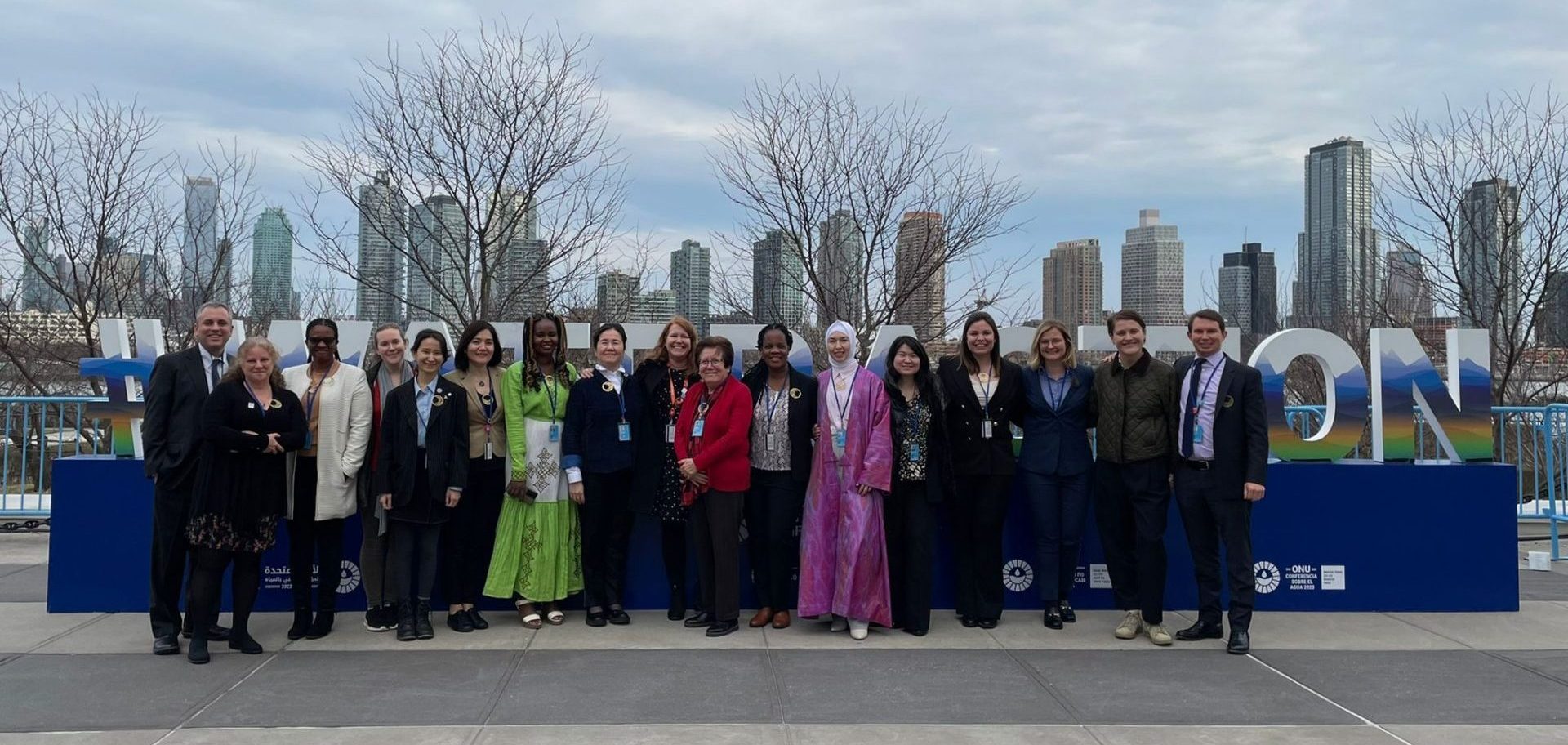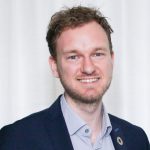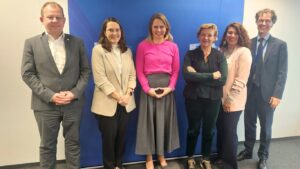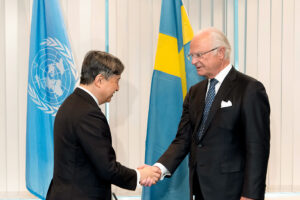The Women in Water Diplomacy Network promotes women’s participation in high-level water diplomacy processes. Ahead of the United Nations 2023 Water Conference, the Network made every effort to support its members to participate in the conference.
SIWI spoke with Elizabeth A. Koch, Senior Manager of International Programs at the Environmental Law Institute and former Senior Manager at SIWI who leads the Network’s Process Support Team; a story of turning barriers into opportunities.
Since its launch in 2017, the Women in Water Diplomacy Network has gathered tremendous momentum. What started as a movement with a few dozen women from across the Nile Basin, has turned into a “rising tide” of women spanning three continents, with members including representatives of ministries, academia, and civil society. The Network’s goal is to improve inclusive water decision making by advancing women’s empowerment and leadership.
A wide range of challenges exist for women’s participation in high-level water diplomacy processes, such as financial constraints, language barriers, lack of internet connectivity, and ongoing conflicts, whilst political obstacles can restrict the movement of diplomats and experts. In 2021, the Women in Water Diplomacy Network identified their attendance at the UN 2023 Water Conference as a priority within its Global Strategy. In the autumn of 2022, with information about the conference becoming available, the Network’s preparations ramped up. In November 2022, their first Q&A session about the conference was held. The event was attended by dozens of Network members, as well as representatives from Indigenous Communities, which helped connect them to actors closely involved with the conference.
Overcoming obstacles
Knowing the typical obstacles around conference attendance, strong efforts were put into acquiring accreditations. Elizabeth recalls: “We read a lot of accreditation applications and provided relevant input as best we could.” Solidarity played a vital role here; to ensure on-site representation of the network several partner institutions offered the bulk of their institution’s accreditation slots to network members.
In its After-Action Report the Network argues that such an approach really helps to actively expand “the diversity of voices” who can “directly share their insights at the UN 2023 Water Conference.” Elizabeth explains “providing space to Network members on already accredited institutional lists proved crucial as most of the members who received accreditation this way would not have been able to join otherwise.”
Getting visas for the Network members who needed them required a dedicated effort from across the Network and its members. “Visas are a challenge. Each country is different”, remembers Elizabeth. To support the process the Network identified consul generals, ambassadors, and political officers and asked for support to fast track applications. The effort generated results, but not everywhere: “This was not always something they could do. In Central Asia it was a success, but Africa had much more robust barriers to visa applications, which is well reflected in the composition of participants at the Water Conference.” Based in New York, Elizabeth reached out to diplomatic missions, sent dozens of letters of support, held visa interviews, and agreed to be the sponsoring party in the process. Despite all efforts, some members were given six month waiting periods for their visas – an unbreachable hurdle given the limited time until the conference. “The visa process was the largest barrier in the end. It was disappointing how challenging obtaining a visa was for many outstanding representatives.”
Overcoming financial constraints became a final focus in the preparations ahead of the UN 2023 Water Conference. A dialogue process with the Government of the Netherlands allowed several partner institutions of the Network to receive grants from the Stakeholder Engagement Fund. The resources were used to provide travel grants, fill resource gaps, and produce materials for the Network’s participation at the Water Conference.
The UN 2023 Water Conference
For the Women in Water Diplomacy Network, the UN 2023 Water Conference was a tremendous success. Engagements included an official on-site side event on the afternoon of the opening day of the conference – World Water Day, a full-day Water Diplomacy Symposium, and speakers represented in a wide range of conference sessions. A key success factor was the opportunity to engage, particularly with those who have faced similar challenges in getting their voice heard. “We learned a great deal from the opportunity to partner with, listen and learn from indigenous communities’ representatives and leaders about their experiences in ‘forcing inclusion’.” said Elizabeth.









